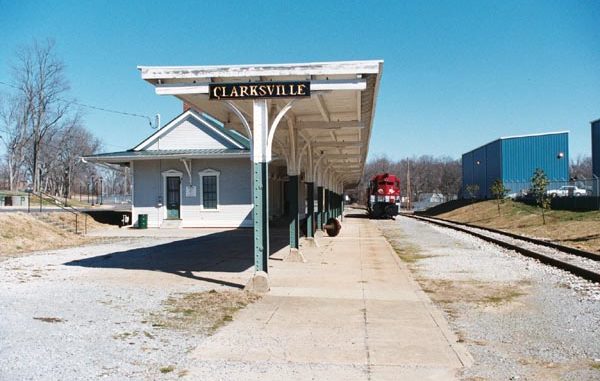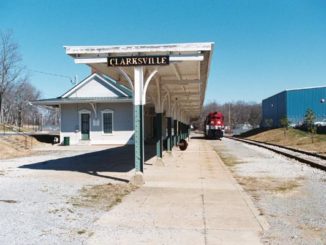
After the end of the Civil War, the Louisville & Nashville Railroad offered to operate the Memphis, Clarksville & Louisville Railroad, which was unable to repair the road.
According to “The Reports of the Committees of the House of Representatives Made During the Second Session Thirty-Ninth Congress”:
Memphis, Clarksville and Louisville railroad.—Shortly after the close of the war, propositions were made by this company to the Memphis, Clarksville and Louisville Railroad Company to repair their road from Clarksville to Paris, Tennessee, with a view of forming a through railroad connection with Memphis. The Memphis, Clarksville and Louisville railroad having no means to put the road in order, the Louisville and Nashville railroad offered to operate the road, and to apply the net earnings to the redemption of the debt. Unfortunately this proposition was not accepted, and a whole year’s business was thus lost. Early last spring the Memphis, Clarksville and Louisville Railroad Company obtained aid from the State of Tennessee—$400,000 in bonds—and soon after an arrangement was entered into by the two companies, according to which the Louisville and Nashville Railroad Company was to furnish the money on the security of these bonds. Under this arrangement, much more favorable and secure to this company than the one first proposed, the repairs of the road are now being pushed with energy, under the able management of George T. Lewis, esq., the receiver on the part of the State of Tennessee, and will be completed early in August.*
The opening of this line of road brings us 118 miles nearer to Memphis, Mobile, and New Orleans; and a new section of country, along the Memphis and Ohio, Mobile and Ohio, and Mississippi Central railroads, is made accessible to the trade of Louisville, which heretofore could only be reached in a very indirect way. Arrangements have been made with the two connecting lines for the operation of the road to Memphis, in effect the same as if it was under the control of one company. Passengers will not have to change cars between Louisville and Memphis, and freight will go through without break of bulk. One day and two nights is all the time required to put freight from Louisville to Memphis, and vice versa. This arrangement, it is hoped, will, when fully known among business men, induce a large amount of freight to go over this line. The superintendents of the Mobile and Ohio and Mississippi Central railroads have declared their willingness to make favorable arrangements with us for the speedy transportation of freight over their roads at reasonable rates.




